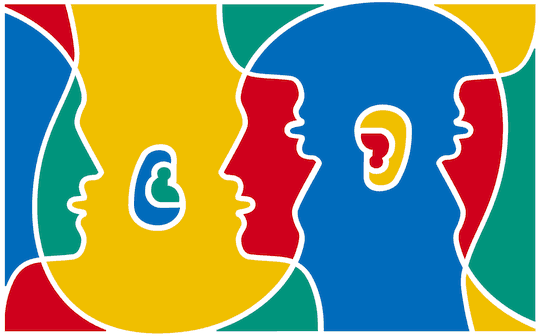Greek Orthodox Community of Melbourne and Victoria
Event

- Title:
- The diachrony of the genitive case in Greek Language
- When:
- 11.05.2014 16.00 h
- Where:
- The Ithacan Philanthropic Society - Melbourne
- Category:
- Education
Description
NOTE: Lecture to be presented in Greek
Presenter: Dionysios Mertyris, PhD Student, Department of Linguistics, La Trobe University
Entry: Free
Summary
The Greek language has undergone a large number of changes throughout its 3400 years of recorded history. The most definitive of these changes took place during the transition from the ancient to the modern language which includes a few historical stages such as the period of late Hellenistic Koine (1st-4th c. AD) and the first centuries of the Eastern Roman empire (early Medieval Greek).
This transitional period had a great degree of impact on the case system of the language, as the four cases of Ancient Greek (nominative, accusative, genitive and dative) were reduced to three due to the loss of the dative during the early Medieval Greek period (5th-10th c.).
Apart from the fact that the functions of the lost dative were inherited by the genitive in southern dialects and the accusative in (most) dialects of Asia Minor and Northern Greece, the reformation of the ancient case system involved the gradual loss of the semantic uses of the oblique cases due to the rise of prepositions and other analytic strategies, as the genitive and the accusative were limited to only marking grammatical relations (Luraghi 2004: 376).
Thus, even though the Ancient Greek genitive could encode ablative and partitive relations , its modern successor is almost exclusively confined to adnominal possession, apart from marking the indirect object in the southern dialects.
This reformation of the case system significantly altered the status of the genitive in late Medieval (11th-1453) and Modern Greek. More specifically, various phenomena of deflexion can be found in every variety of Modern Greek:
- Syncretism with the accusative: the genitive plural of personal pronouns has been replaced by the accusative in almost every modern dialect:
τὰ παιδία ἡμῶν [GEN] → τα παιδιά μας [ACC] "our children"
For some dialects, the accusative replaces the genitive plural in the nominal inflection as well, e.g. in Cypriot:
τα σπίτια των ανθρώπων [GEN] → τα σπίτια τους ανθρώπους [ACC]
"the houses of the people" - Paradigmatic gaps: in almost every modern variety there is a number of nouns that cannot form the genitive:
παιδάκι "little child" → gen.sg *παιδακιού/ gen.pl *παιδακιών
κοπέλα "young woman" → gen.pl *κοπελών - Complete loss of the genitive plural in Northern Greek: the grammaticalization of the preposition από "from" has resulted in the loss of the genitive plural with all nouns in the majority of the varieties of the northern dialectal group:
*τα σπίτια τουν ανθρώπουν → τα σπίτια απ' τ'ς ανθρώπ'ς
"the houses of the people" - Zero marking of nominal possessors: in some dialects that are exposed to extreme degree of contact with other languages, nominal genitives can be left morphologically unmarked:
Salento, Southern Italy: *τως αττρεφίω [GEN] → τως αττρέφια [NOM]
"of the siblings"
Fárasa, Central Asia Minor: *του χωρίου [GEN] → του χωρίον [NOM] "of the village"
Biography
My PhD thesis deals with the loss of the genitive in the diachrony of Greek. My interest in language change and the history of Greek was sparked during my high school years when I noticed the great differences and similarities between Classical and Common Modern Greek.
Apart from my dedication to Historical and Greek Linguistics, I have also conducted fieldwork in Papua New Guinea for the documentation of the language Kara in New Ireland (2008). As regards my earlier studies, I completed my BA in Greek Philology (2006) and MA in Linguistics (2008) at the National and Kapodistrian University of Athens.
I have tutored the subject Intercultural Communication (Sem 1, 2013) at La Trobe University, I have taught Greek as a second and a foreign language to adult and young learners and I am also a certified ESL teacher (CELTA, Cambridge University).
Sponsors
We would like to thank Theo Markos and Erma Vassiliou for sponsoring this lecture. Such initiatives assist us in providing these lectures free to the public.
If you would like to participate as a sponsor from as little as $100 please send us an email: This e-mail address is being protected from spambots. You need JavaScript enabled to view it
Venue
- Venue:
- The Ithacan Philanthropic Society - Website
- Street:
- Level 2, 329 Elizabeth Street
- Postcode:
- 3000
- Suburb:
- Melbourne
- State:
- VIC
- Country:
-

In October 1916, the Ithacan migrants of Melbourne established the ITHACAN PHILANTHROPIC SOCIETY "The Ulysses", with an inaugural membership of some 153 members. This was in response to pleas for aid from their loved ones in Ithaca who were suffering deprivation during the First World War.
Over the years, however, the Society has been much more than just a philanthropic institution. It has been a constant in the lives of the early Ithacan migrants replacing the homeland which they had left.
The Society takes an active role in the cultural, social, educational and quality of life interests of the Ithacan Community. The Society, as part of its philanthropic role, also makes many monetary contributions to worthy causes, including those outside the immediate Ithacan community. The Society celebrated its 90th Anniversary in 2006.
EventList powered by schlu.net

